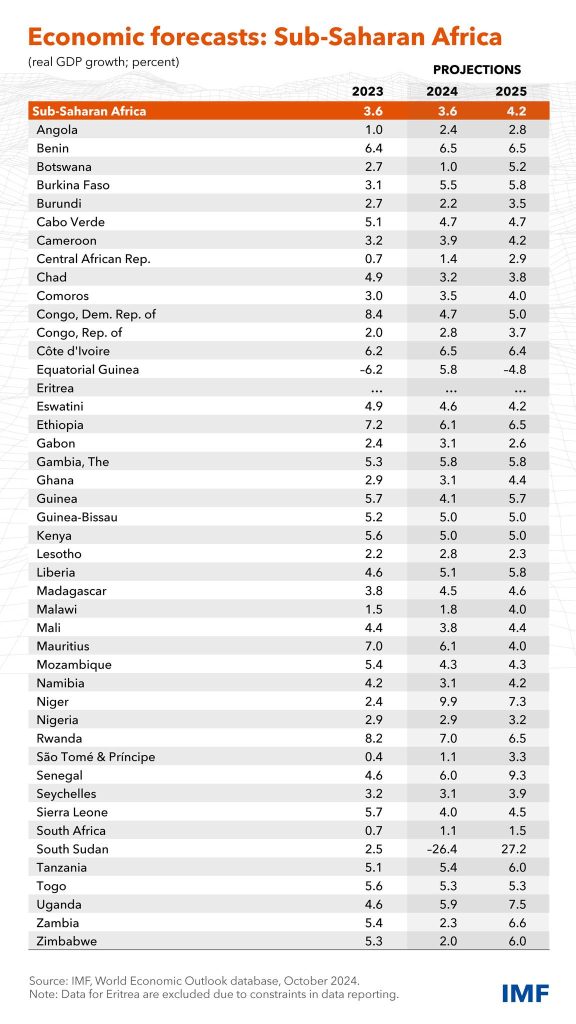By Francis Ntow
Washington DC (USA), Oct 26, GNA – The International Monetary Fund (IMF), has revised Ghana’s 2024 Gross Domestic Product (GDP) growth from 3.1 per cent to four per cent.
The Fund explained that the revision reflected current data on the Ghanaian economy, as the projected 3.1 per cent in its October World Economic Outlook was based on data prior to its Mission’s review earlier this month.
This development comes from the positive impact of the country’s debt restructuring programme and macroeconomic recovery, stemming from the implementation of reforms under the ongoing US$3 billion IMF programme.
Mr Abebe Aemro Selassie, Director, IMF’s African Department, said this at the Sub-Saharan Africa Regional Economic Outlook on the margins of the 2024 Annual Meetings of the IMF and the World Bank Group (WBG).
“The deadline for the submission of the real numbers was in mid-to-late August. So, at that time our projection was three per cent… In Ghana, the team subsequently went to Accra, and [with the] updated projections, we’re now projecting close to four per cent,” he said.
Already, the country’s GPD has surged from the 2.8 per cent in the first half of 2023 to 5.9 per cent in the same period in 2024, which Mr Selassie said that was achieved through difficult reform implementation.
“Ghana has gone through a really wrenching period of macroeconomic instability, and decided to move forward with a comprehensive set of reforms. These reforms are beginning to bear fruit, and that’ s the growth numbers that we’ve seen,” he noted.
The IMF African Department Director asked the government to ensure that the gains made were consolidated, especially in the face of elections, which over time, had been characterised by expenditure spillages.
Going forward, he asked the government to continue to strike a healthy balance between meeting all the development spending needs of Ghanaians, and while maintaining debt sustainability.
“That requires maintaining modest levels of fiscal deficits. Going through an election cycle now, avoiding the pitfalls, which Ghana has faced in election cycles in the past. These will all be critical to making sure that Ghana can have a healthy macroeconomic situation,” Mr Selassie said.
On the continent’s growth, he said the Fund expected GDP to remain modest at 3.6 per cent recorded for 2023, particularly in per capita terms.
He, however, noted that with some signs of acceleration beginning to be seen on the continent, it was projecting that Africa’s growth would reach around 4.2 per cent in 2025.
He urged African governments to continue to sustain improvements in macroeconomic balances, make room to spend on development and social protection, while ensuring that reforms were socially and politically acceptable.

GNA